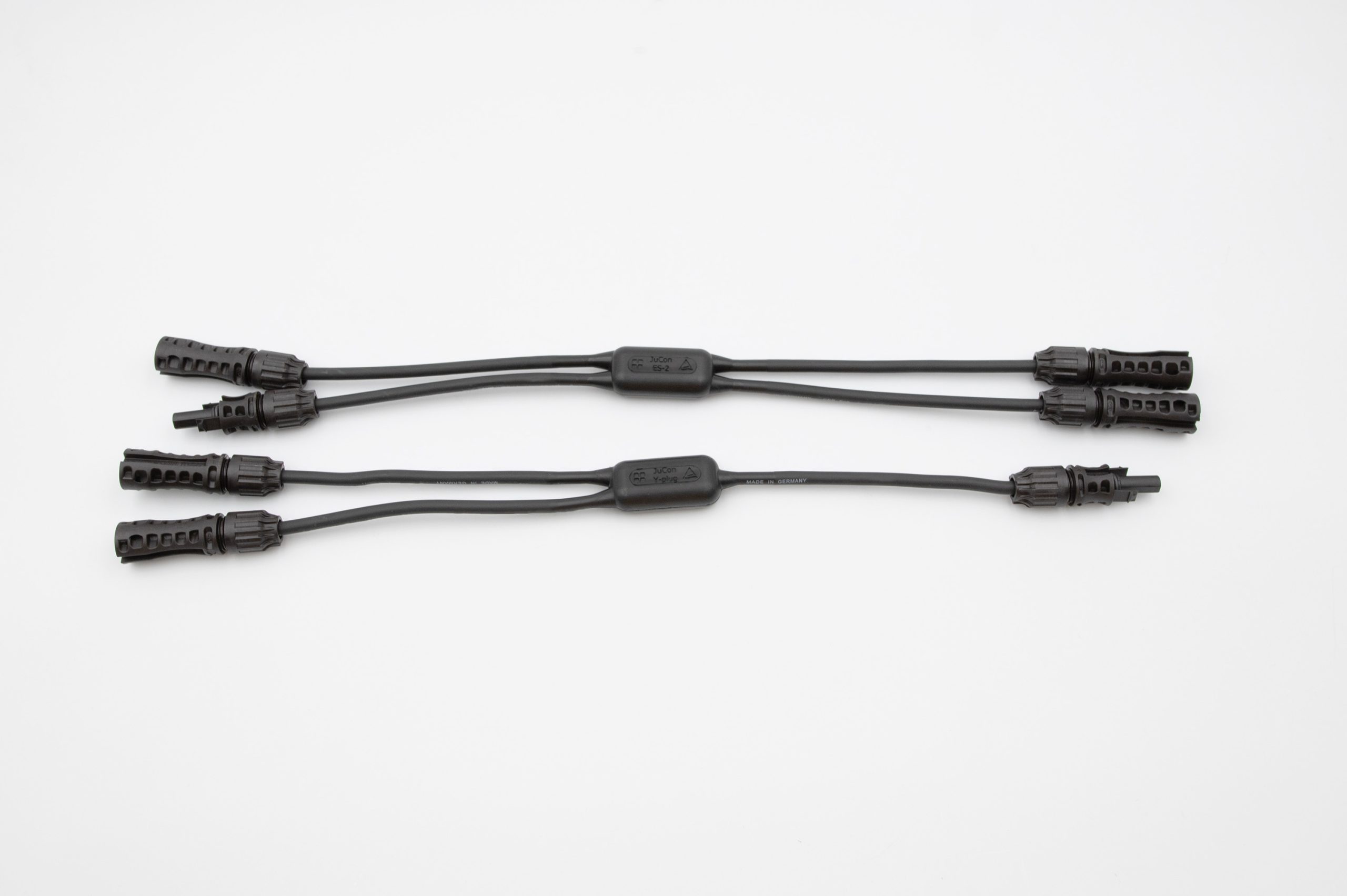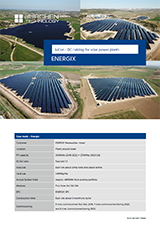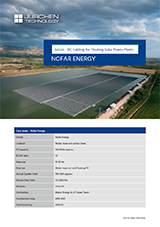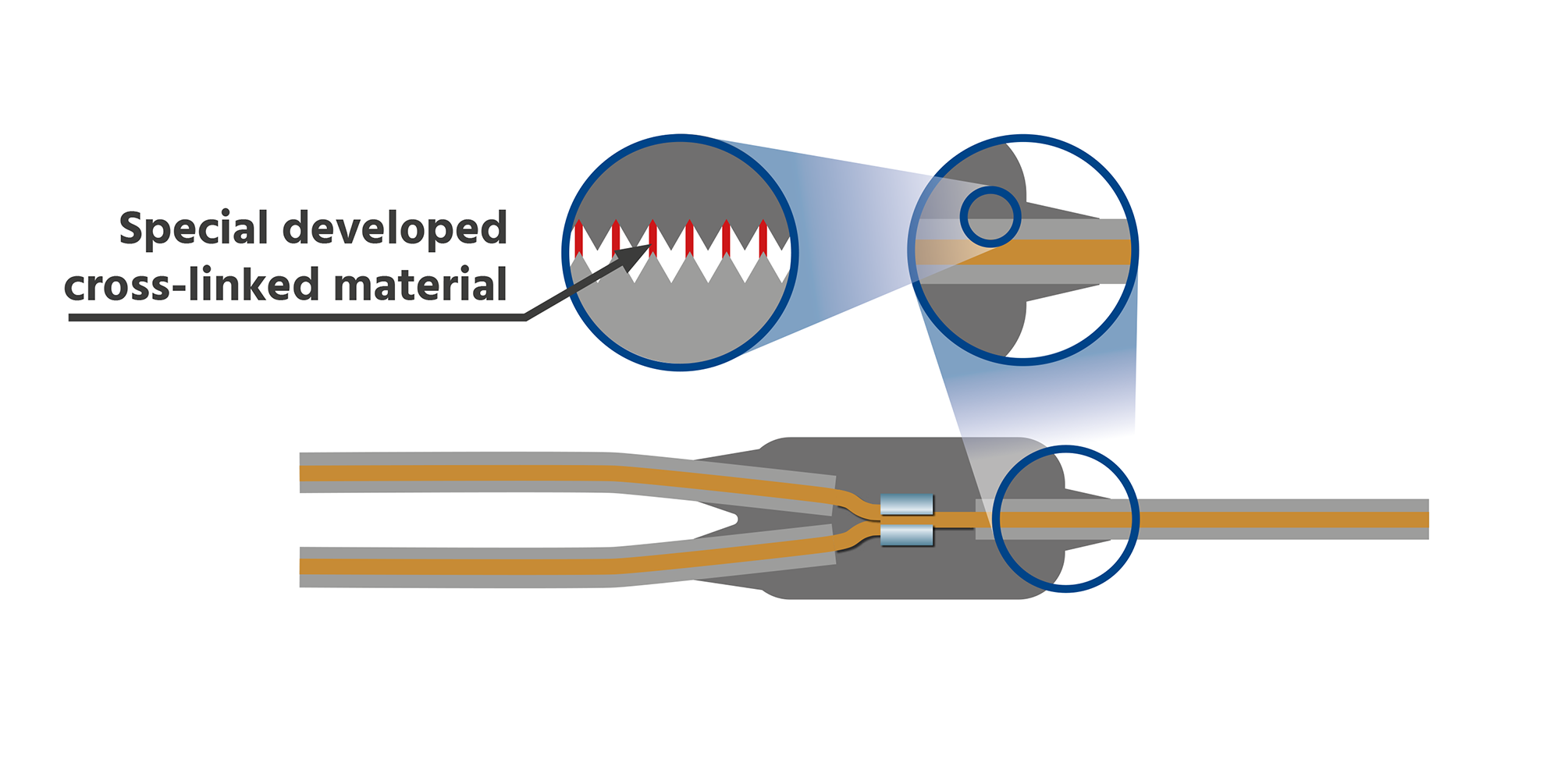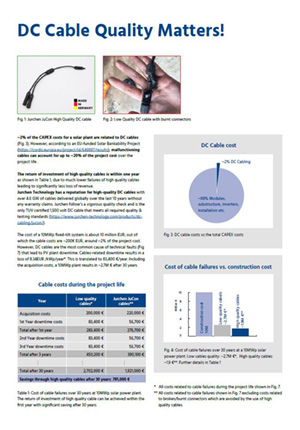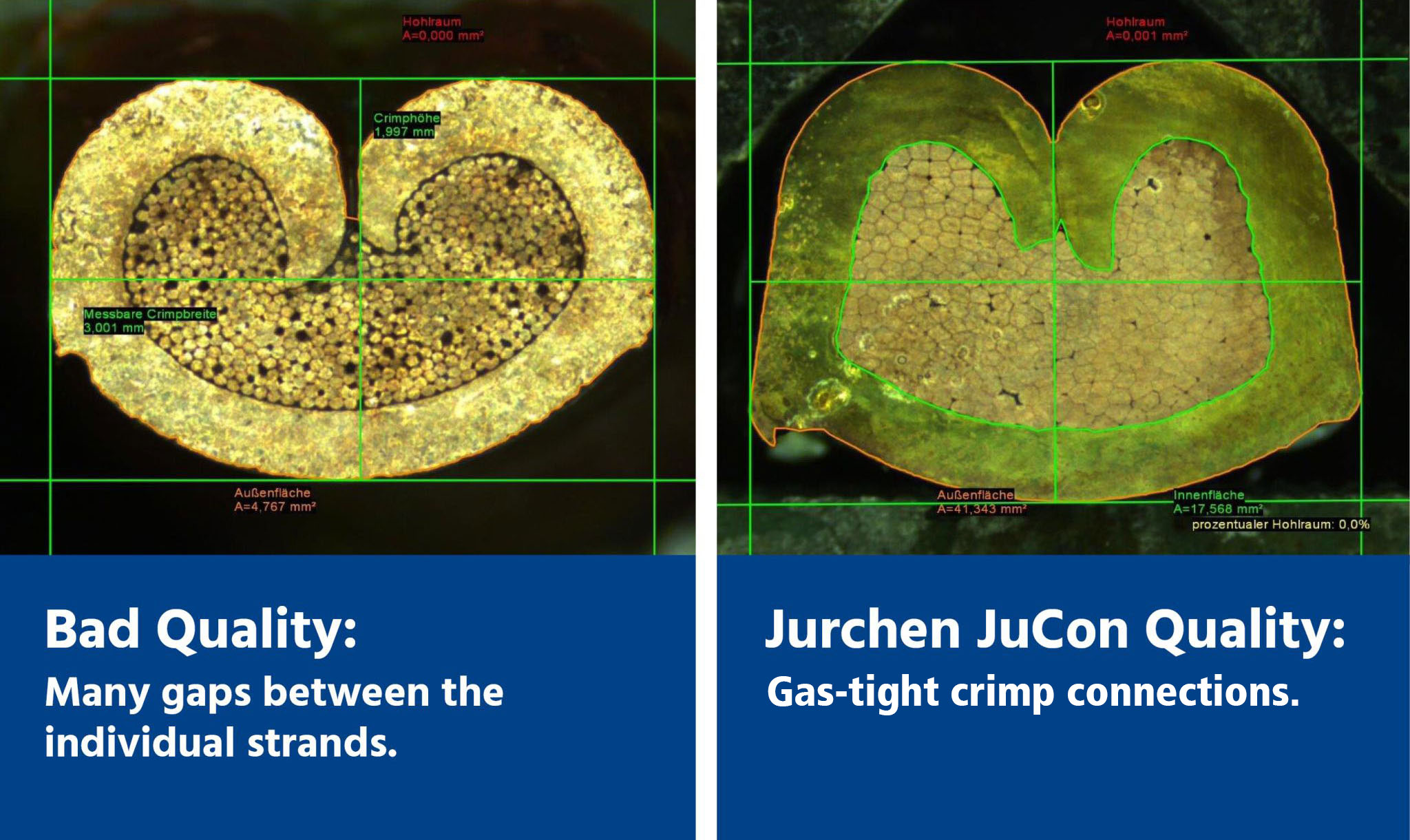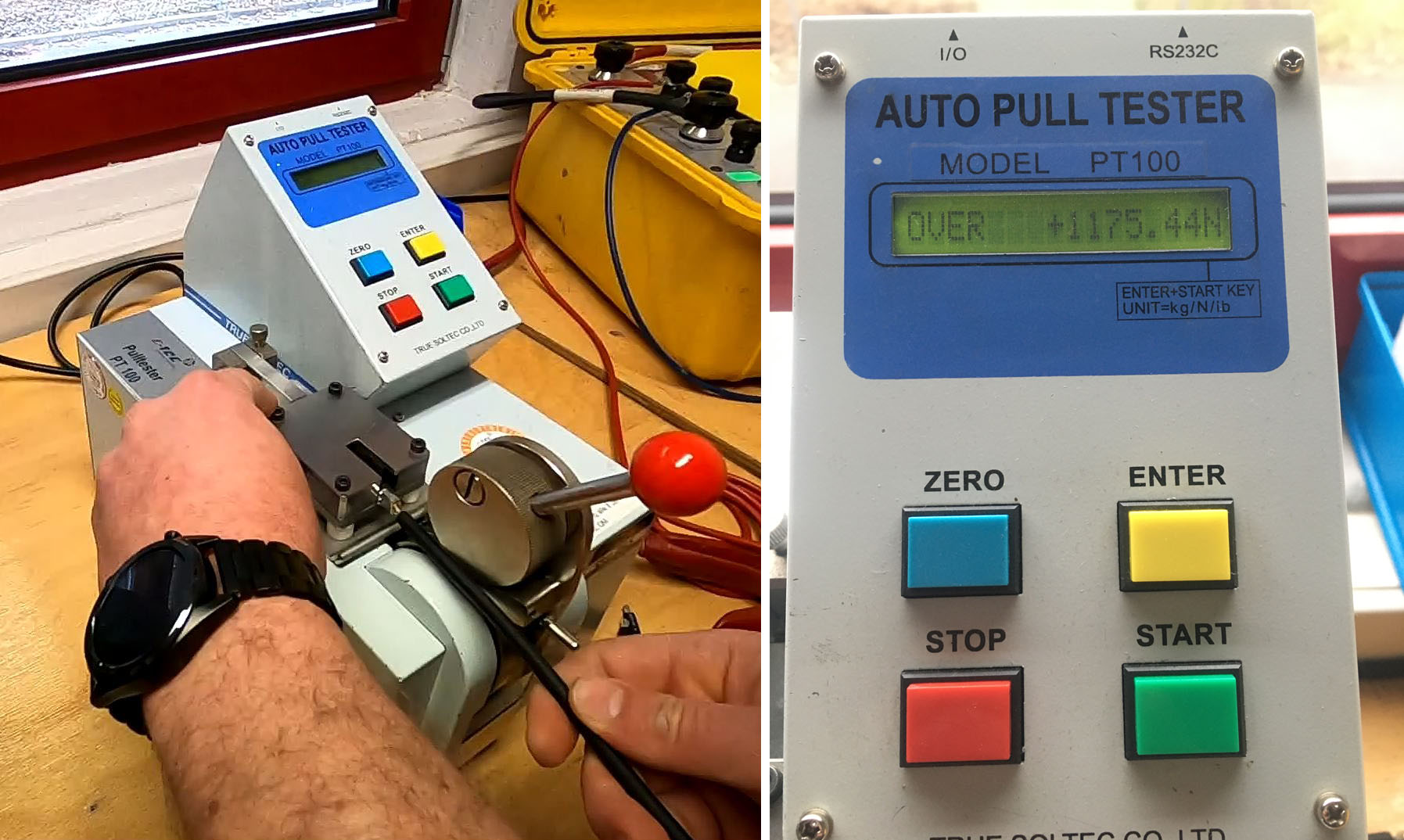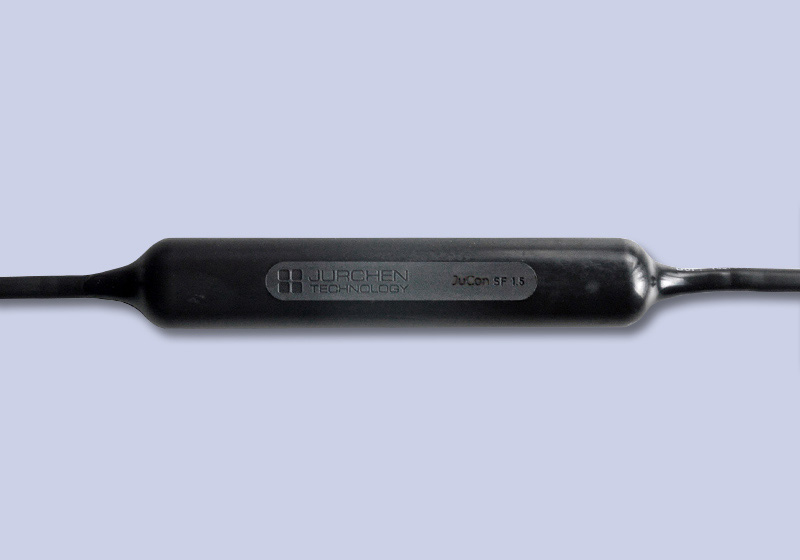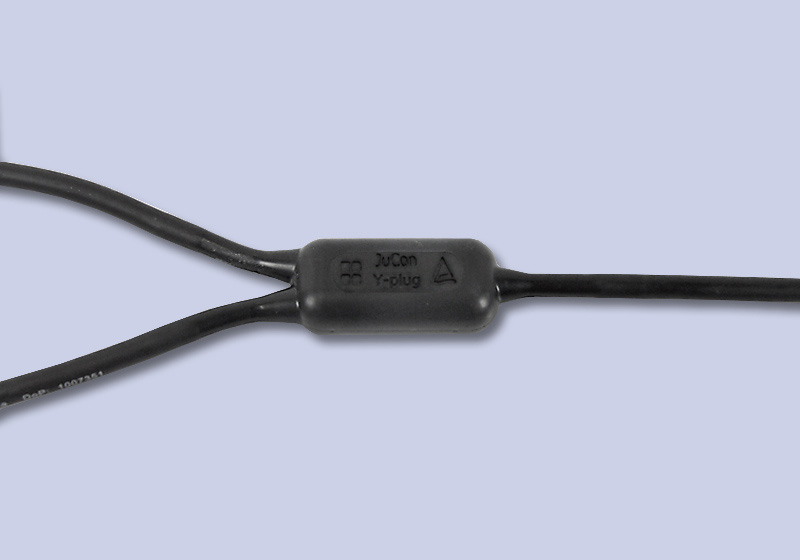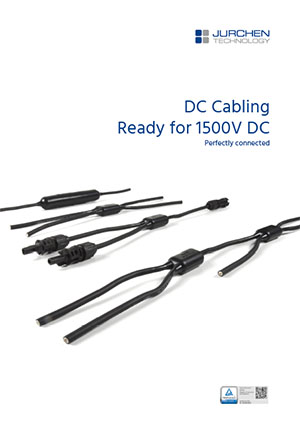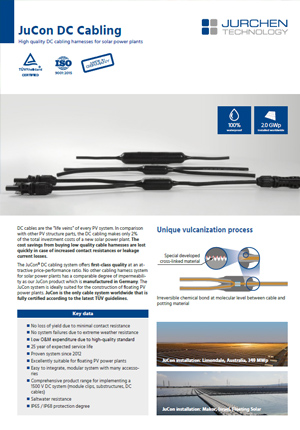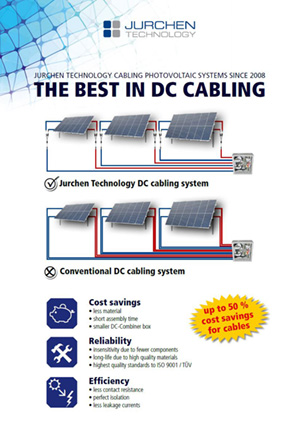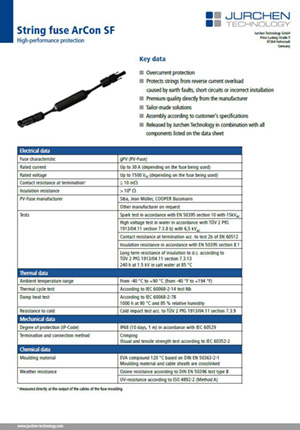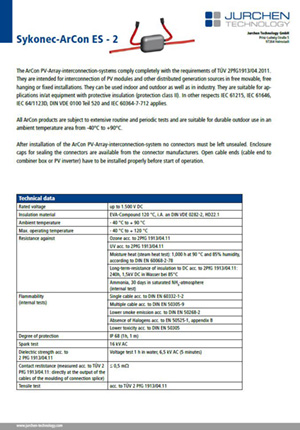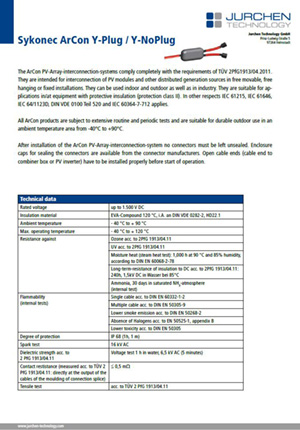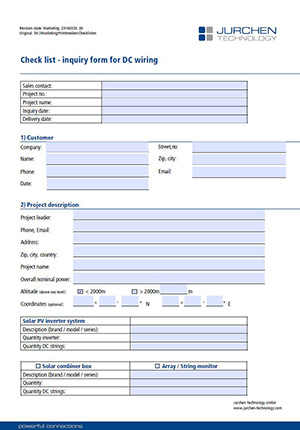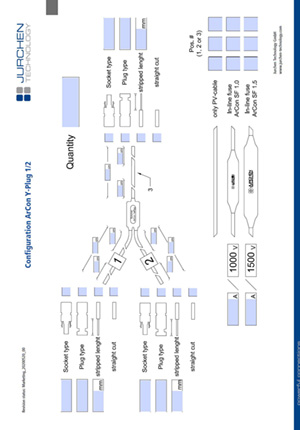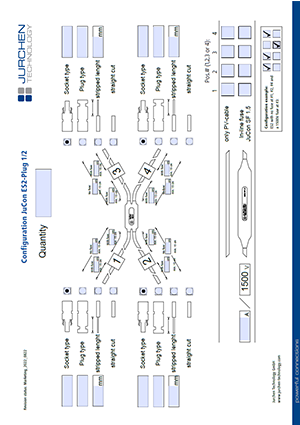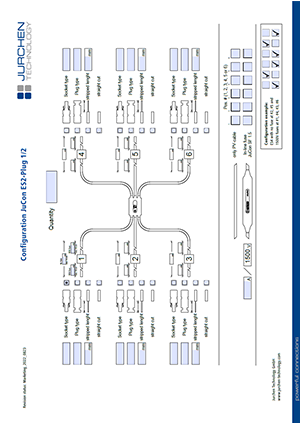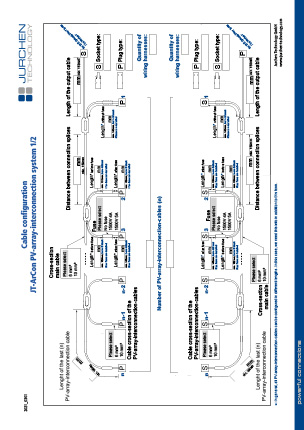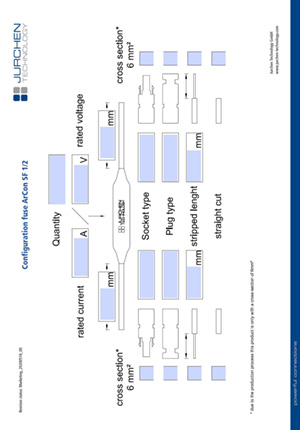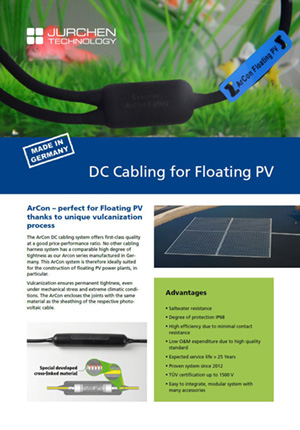DC cables are the “life veins“ of every PV system. In comparison with other PV structure parts, the DC cabling makes only 1% of the total investment costs of a new solar power plant. The cost savings from buying cheap cable harnesses are lost quickly in case of increased contact resistances or leakage current losses .
The JuCon® DC cabling system offers first-class quality at a good price-performance ratio. No other cabling harness system for solar power plants has a comparable degree of impermeability as our JuCon series manufactured in Germany. The JuCon system is ideally suited for the construction of floating PV power plants.
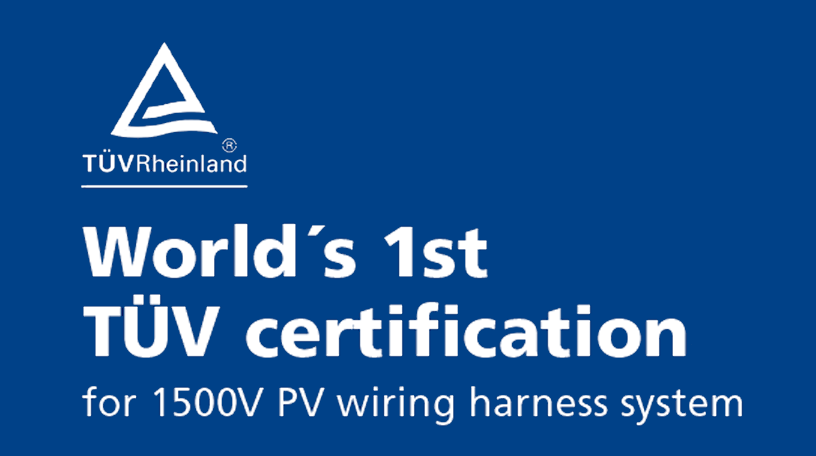
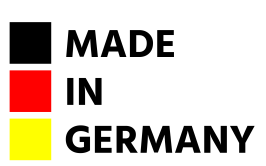
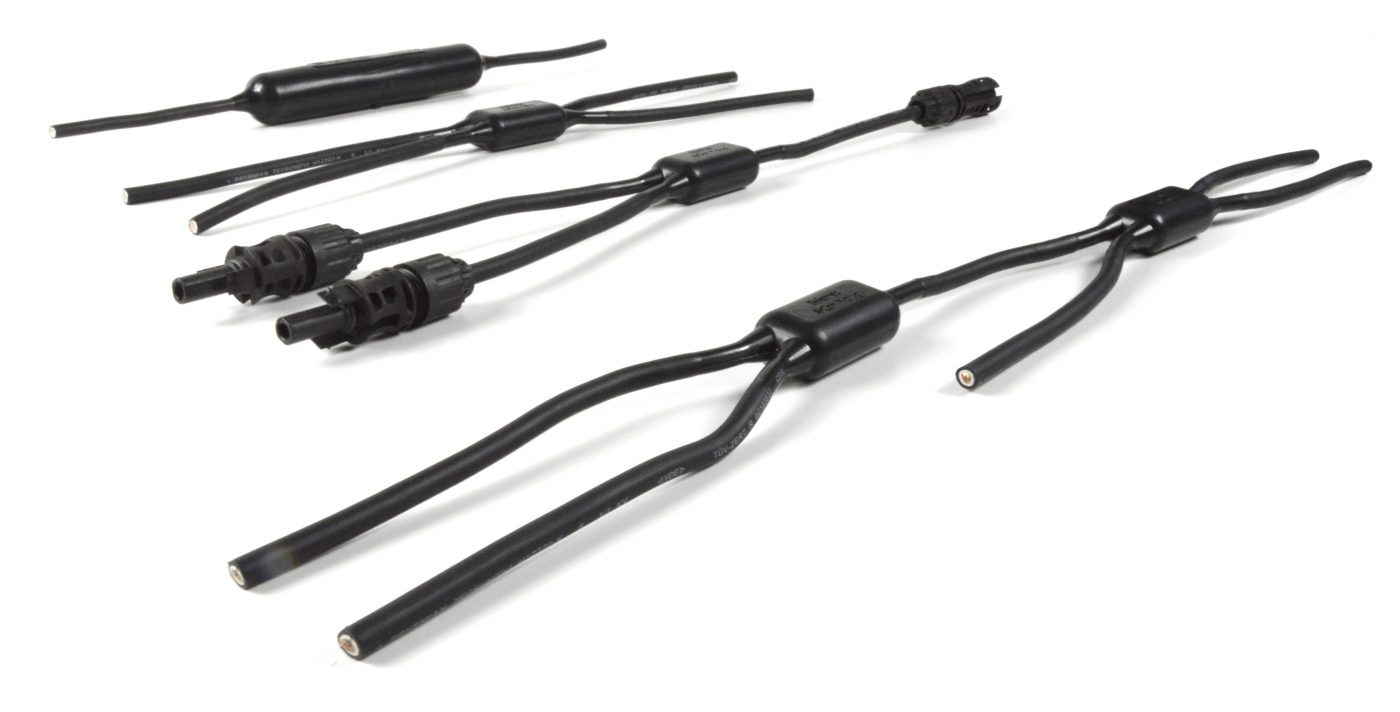
JuCon advantages
- No loss of yield due to minimal contact resistance
- No system failures due to extreme weather resistance
- Low O&M expenditure due to high-quality standard
- 25 year of expected service life
- Proven system
- Excellently suitable for floating PV power plants
- Easy to integrate, modular system with many accessories
- Comprehensive product range for implementing a 1500 V DC system (module clips, substructures, DC cables)
Unique vulcanization process
Vulcanization ensures permanent tightness, even under mechanical stress and extreme climatic conditions. The JuCon encloses the joints with the same material as the sheathing of the respective photovoltaic cable.
DC Cable quality matters
~2% of the CAPEX costs for a solar plant are related to DC cables. However, according to an EU-funded Solar Bankability Project, malfunctioning cables can account for up to ~20% of the project cost over the project life .
The investment in high-quality cables pays for itself within a year, due to much lower failures of high quality cables leading to significantly less loss of revenue.
The cost of a 10MWp fixed-tilt system is about 10 million EUR, out of which the cable costs are ~200K EUR, around ~2% of the project cost. However, DC cables are the most common cause of technical faults that lead to PV plant downtime. Cables-related downtime results in a loss of 8.34EUR /kWp/year. This is translated to 83,400 €/year. Including the acquisition costs, a 10MWp plant results in ~2.7M € after 30 years.
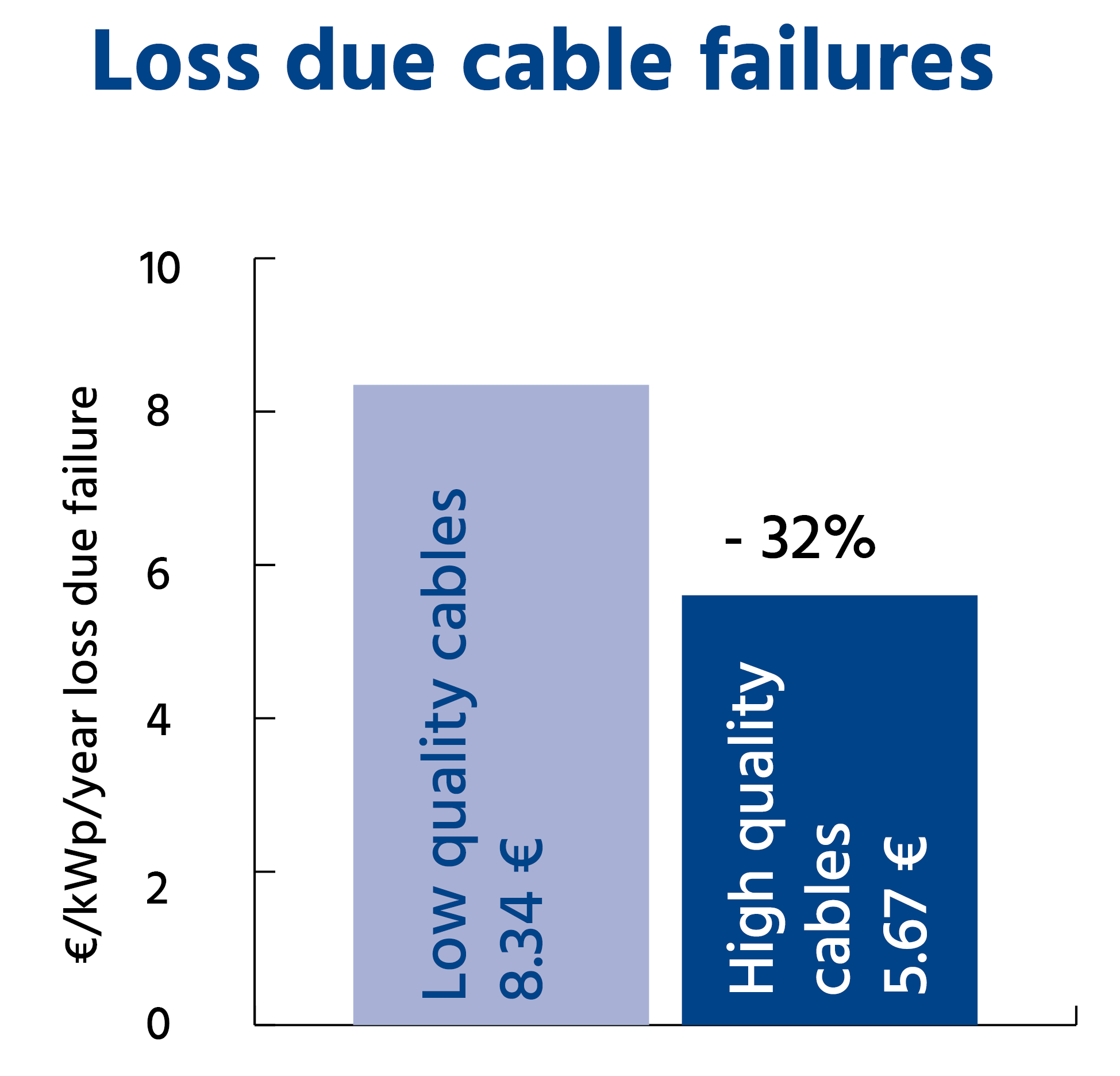
We use several test procedures in the quality assurance of our JuCon cables. If a sufficiently high force is not applied during crimping or if an incorrect crimping tool is used, cables are pressed insufficiently. As a result of the faulty contacting, the contact resistance between the cable and the sleeve increases due to corrosion on the individual strands. Furthermore, there is the risk that an incompletely crimped cable can be pulled out of the crimp sleeve.
To check the quality of the crimp connection, so-called micrographs of the crimping point are enlarged on a microscope. In the example right image shown, it is easy to see that almost no unwanted gaps have formed between the individual strands.
We regularly test our cable crimps. The pull test measures the quality of the crimping. In the pull test machine, tensile force (torque, measured in Nm) is applied to the cable. Example: For a Y-connection with a cable cross-section of 6 mm², the IEC standard specifies a torque of 680 Nm. With our JuCon Y-connection, we achieve 1175 Nm!
uses ArCon DC cabling.
Example Configuration
Module table with 6 strings, each 15 modules, 1500V fuses

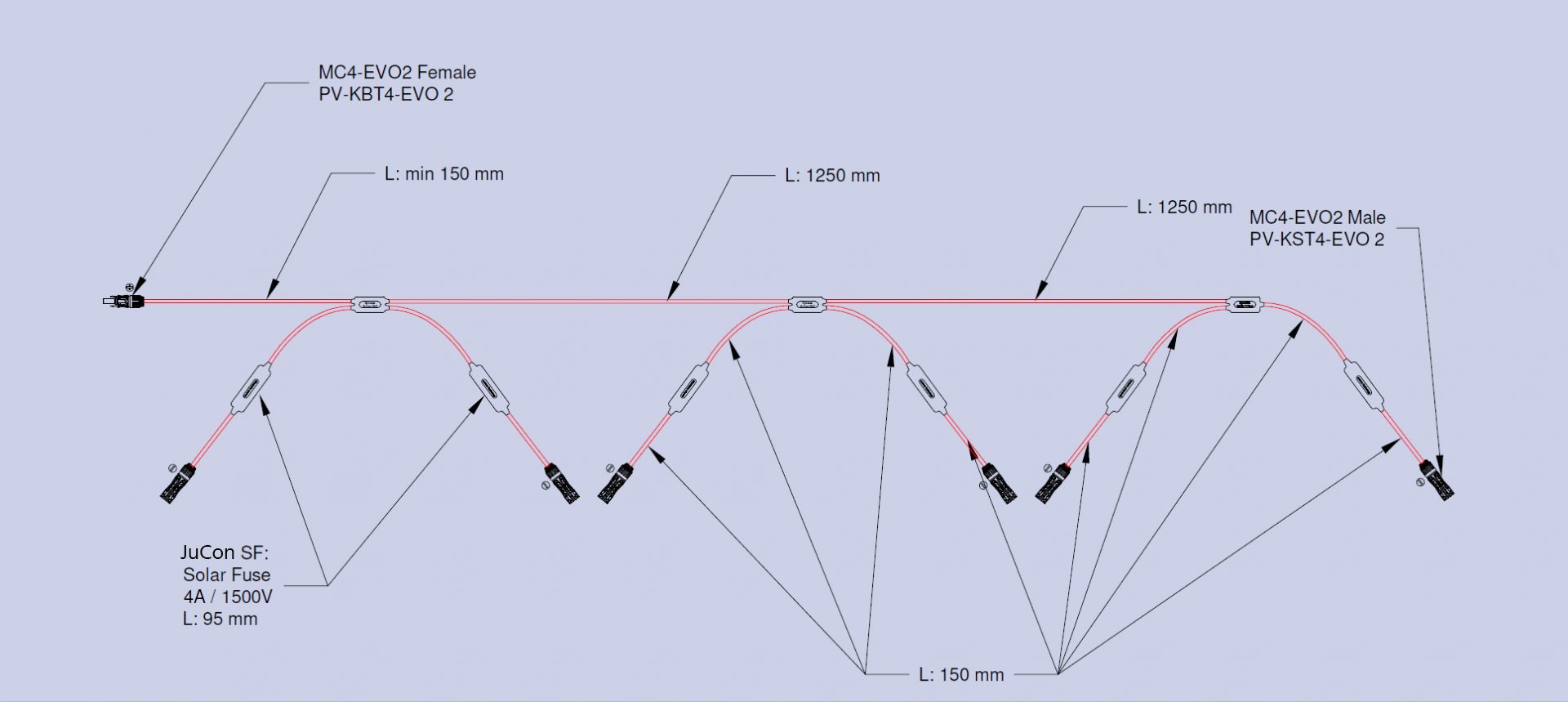
This is the DC harness configuration of the example above.
in Australia (349 MWp):
Production in Germany
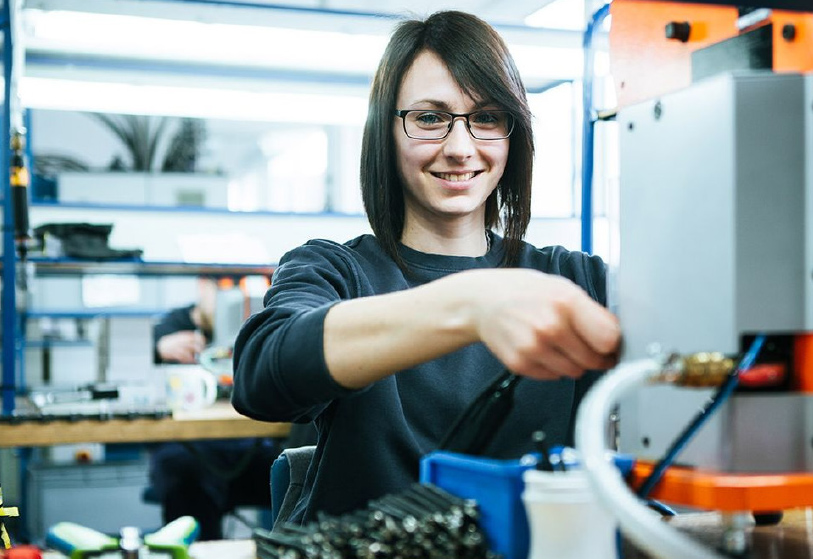
High materials and workmanship quality and long-lasting reliability are maintained at the production of JuCon DC harnesses in Germany.
Quality Control
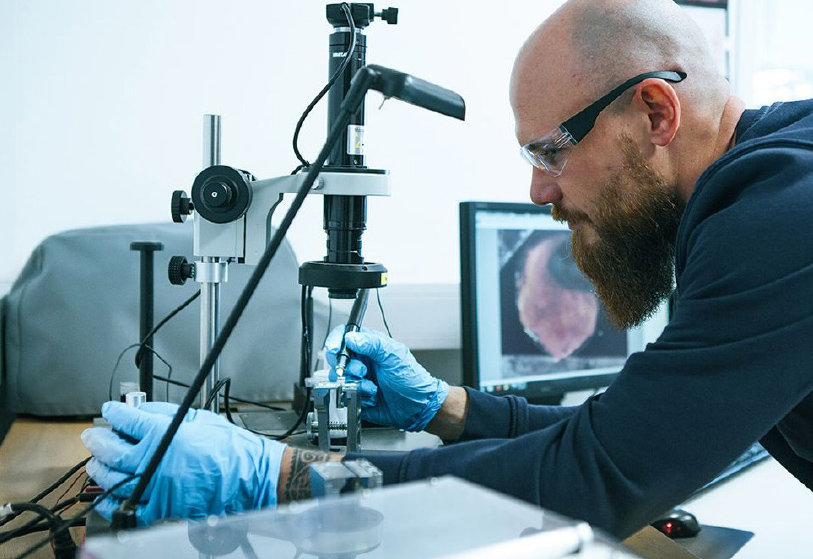
Our quality control consists of:
1. Passage test
2. Spark test
3. Pull test
4. Contact resistance test
5. High voltage test
6. Final check
| Technical Data JuCon | |
|---|---|
| Rated voltage | up to 1,500 V DC |
| Insulation material | EVA-Compound 120 °C, acc. to DIN VDE 0282-2, HD22.1 |
| Ambient temperature | - 40 °C to + 90 °C |
| Max. operating temperature | - 40 °C to + 120 °C |
| Resistance against | Ozone acc. to 2PfG 1913/04.11, UV acc. to 2PfG 1913/04.11, Moisture heat (steam heat test): 1,000 h at 90 °C and 85% humidity, according to DIN EN 60068-2-78, Long-term-resistance of insulation to DC acc. to 2PfG 1913/04.11: 240h, 1,5kV DC in water at 85°C, Ammonia, 30 days in saturated NH3-atmosphere (internal test) |
| Flammability (internal tests) | Single cable acc. to DIN EN 60332-1-2, Multiple cable acc. to DIN EN 50305-9, Lower smoke emission acc. to DIN EN 50268-2, Absence of Halogens acc. to EN 50525-1, appendix B, Lower toxicity acc. to DIN EN 50305 |
| Degree of protection | IP 68 (1h, 1 m) |
| Spark test | 15 kV AC |
| Dielectric strength acc. to 2 PfG 1913/04.11 | Voltage test 1h in water, 6,5 kV AC (5 minutes) |
| Contact resistance (measured acc. to TÜV 2 PfG 1913/04.11: directly at the output of the cables of the moulding od connection splice) | ≤ 0,5 mΩ |
| Tensile test | acc. to TÜV 2 PfG 1913/04.11 |
Downloads
Sales

Henner Jahnke
Chief Sales Officer

Herbert Heidel
Europe, Middle east

Matthew Lusk
North & South America, Caribbean

Amit Chheda
Rooftop & cabling - Asia, India

Yoni Ben Mazia
Israel, Australia

Abhishek Deshpande
Strategic Business Development Manager
Internal Sales Service & Project Management

Andrea Vidoni
Worldwide

Sabrina Klippel
Worldwide
